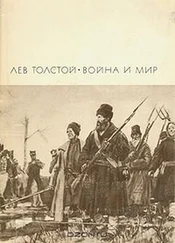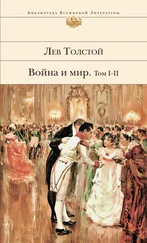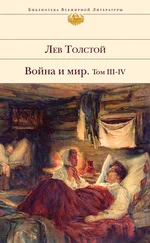| What a heart! |
Что за сердце! |
| How like him it is! |
Как я узнаю его! |
| And how he has remembered everybody! |
И как вспомнил всех! |
| Not forgetting anyone. |
Никого не забыл. |
| I always said when he was only so high-I always said...." |
Я всегда, всегда говорила, еще когда он вот какой был, я всегда говорила... |
| For more than a week preparations were being made, rough drafts of letters to Nicholas from all the household were written and copied out, while under the supervision of the countess and the solicitude of the count, money and all things necessary for the uniform and equipment of the newly commissioned officer were collected. |
Более недели готовились, писались брульоны и переписывались набело письма к Николушке от всего дома; под наблюдением графини и заботливостью графа собирались нужные вещицы и деньги для обмундирования и обзаведения вновь произведенного офицера. |
| Anna Mikhaylovna, practical woman that she was, had even managed by favor with army authorities to secure advantageous means of communication for herself and her son. |
Анна Михайловна, практическая женщина, сумела устроить себе и своему сыну протекцию в армии даже и для переписки. |
| She had opportunities of sending her letters to the Grand Duke Constantine Pavlovich, who commanded the Guards. |
Она имела случай посылать свои письма к великому князю Константину Павловичу, который командовал гвардией. |
| The Rostovs supposed that The Russian Guards, Abroad, was quite a definite address, and that if a letter reached the Grand Duke in command of the Guards there was no reason why it should not reach the Pavlograd regiment, which was presumably somewhere in the same neighborhood. And so it was decided to send the letters and money by the Grand Duke's courier to Boris and Boris was to forward them to Nicholas. |
Ростовы предполагали, что русская гвардия за границей , есть совершенно-определительный адрес, и что ежели письмо дойдет до великого князя, командовавшего гвардией, то нет причины, чтобы оно не дошло до Павлоградского полка, который должен быть там же поблизости; и потому решено было отослать письма и деньги через курьера великого князя к Борису, и Борис уже должен был доставить их к Николушке. |
| The letters were from the old count, the countess, Petya, Vera, Natasha, and Sonya, and finally there were six thousand rubles for his outfit and various other things the old count sent to his son. |
Письма были от старого графа, от графини, от Пети, от Веры, от Наташи, от Сони и, наконец, 6 000 денег на обмундировку и различные вещи, которые граф посылал сыну. |
| CHAPTER VII |
VII |
| On the twelfth of November, Kutuzov's active army, in camp before Olmutz, was preparing to be reviewed next day by the two Emperors-the Russian and the Austrian. |
12-го ноября кутузовская боевая армия, стоявшая лагерем около Ольмюца, готовилась к следующему дню на смотр двух императоров -русского и австрийского. |
| The Guards, just arrived from Russia, spent the night ten miles from Olmutz and next morning were to come straight to the review, reaching the field at Olmutz by ten o'clock. |
Гвардия, только что подошедшая из России, ночевала в 15-ти верстах от Ольмюца и на другой день прямо на смотр, к 10-ти часам утра, вступала на ольмюцкое поле. |
| That day Nicholas Rostov received a letter from Boris, telling him that the Ismaylov regiment was quartered for the night ten miles from Olmutz and that he wanted to see him as he had a letter and money for him. |
Николай Ростов в этот день получил от Бориса записку, извещавшую его, что Измайловский полк ночует в 15-ти верстах не доходя Ольмюца, и что он ждет его, чтобы передать письмо и деньги. |
| Rostov was particularly in need of money now that the troops, after their active service, were stationed near Olmutz and the camp swarmed with well-provisioned sutlers and Austrian Jews offering all sorts of tempting wares. |
Деньги были особенно нужны Ростову теперь, когда, вернувшись из похода, войска остановились под Ольмюцом, и хорошо снабженные маркитанты и австрийские жиды, предлагая всякого рода соблазны, наполняли лагерь. |
| The Pavlograds held feast after feast, celebrating awards they had received for the campaign, and made expeditions to Olmutz to visit a certain Caroline the Hungarian, who had recently opened a restaurant there with girls as waitresses. |
У павлоградцев шли пиры за пирами, празднования полученных за поход наград и поездки в Ольмюц к вновь прибывшей туда Каролине Венгерке, открывшей там трактир с женской прислугой. |
| Rostov, who had just celebrated his promotion to a cornetcy and bought Denisov's horse, Bedouin, was in debt all round, to his comrades and the sutlers. |
Ростов недавно отпраздновал свое вышедшее производство в корнеты, купил Бедуина, лошадь Денисова, и был кругом должен товарищам и маркитантам. |
| On receiving Boris' letter he rode with a fellow officer to Olmutz, dined there, drank a bottle of wine, and then set off alone to the Guards' camp to find his old playmate. |
Получив записку Бориса, Ростов с товарищем поехал до Ольмюца, там пообедал, выпил бутылку вина и один поехал в гвардейский лагерь отыскивать своего товарища детства. |
| Rostov had not yet had time to get his uniform. |
Ростов еще не успел обмундироваться. |
| He had on a shabby cadet jacket, decorated with a soldier's cross, equally shabby cadet's riding breeches lined with worn leather, and an officer's saber with a sword knot. The Don horse he was riding was one he had bought from a Cossack during the campaign, and he wore a crumpled hussar cap stuck jauntily back on one side of his head. |
На нем была затасканная юнкерская куртка с солдатским крестом, такие же, подбитые затертой кожей, рейтузы и офицерская с темляком сабля; лошадь, на которой он ехал, была донская, купленная походом у казака; гусарская измятая шапочка была ухарски надета назад и набок. |
| As he rode up to the camp he thought how he would impress Boris and all his comrades of the Guards by his appearance-that of a fighting hussar who had been under fire. |
Подъезжая к лагерю Измайловского полка, он думал о том, как он поразит Бориса и всех его товарищей-гвардейцев своим обстреленным боевым гусарским видом. |
| The Guards had made their whole march as if on a pleasure trip, parading their cleanliness and discipline. |
Гвардия весь поход прошла, как на гуляньи, щеголяя своей чистотой и дисциплиной. |
| They had come by easy stages, their knapsacks conveyed on carts, and the Austrian authorities had provided excellent dinners for the officers at every halting place. |
Переходы были малые, ранцы везли на подводах, офицерам австрийское начальство готовило на всех переходах прекрасные обеды. |
| The regiments had entered and left the town with their bands playing, and by the Grand Duke's orders the men had marched all the way in step (a practice on which the Guards prided themselves), the officers on foot and at their proper posts. |
Полки вступали и выступали из городов с музыкой, и весь поход (чем гордились гвардейцы), по приказанию великого князя, люди шли в ногу, а офицеры пешком на своих местах. |
| Boris had been quartered, and had marched all the way, with Berg who was already in command of a company. |
Борис всё время похода шел и стоял с Бергом, теперь уже ротным командиром. |



